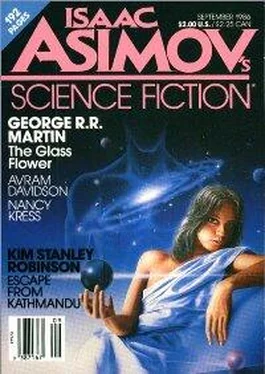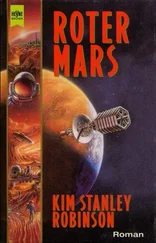Kim Robinson - Escape from Kathmandu
Здесь есть возможность читать онлайн «Kim Robinson - Escape from Kathmandu» весь текст электронной книги совершенно бесплатно (целиком полную версию без сокращений). В некоторых случаях можно слушать аудио, скачать через торрент в формате fb2 и присутствует краткое содержание. Год выпуска: 1986, Жанр: Фантастика и фэнтези, на английском языке. Описание произведения, (предисловие) а так же отзывы посетителей доступны на портале библиотеки ЛибКат.
- Название:Escape from Kathmandu
- Автор:
- Жанр:
- Год:1986
- ISBN:нет данных
- Рейтинг книги:4 / 5. Голосов: 1
-
Избранное:Добавить в избранное
- Отзывы:
-
Ваша оценка:
- 80
- 1
- 2
- 3
- 4
- 5
Escape from Kathmandu: краткое содержание, описание и аннотация
Предлагаем к чтению аннотацию, описание, краткое содержание или предисловие (зависит от того, что написал сам автор книги «Escape from Kathmandu»). Если вы не нашли необходимую информацию о книге — напишите в комментариях, мы постараемся отыскать её.
in Sep 1986. Later published as part of
collection (Tor Books, 1989).
Escape from Kathmandu — читать онлайн бесплатно полную книгу (весь текст) целиком
Ниже представлен текст книги, разбитый по страницам. Система сохранения места последней прочитанной страницы, позволяет с удобством читать онлайн бесплатно книгу «Escape from Kathmandu», без необходимости каждый раз заново искать на чём Вы остановились. Поставьте закладку, и сможете в любой момент перейти на страницу, на которой закончили чтение.
Интервал:
Закладка:
Escape from Kathmandu
by Kim Stanley Robinson
I
Usually I’m not much interested in other people’s mail. I mean when you get right down to it, even my own mail doesn’t do that much for me. Most of it’s junk mail or bills, and even the real stuff is, like, official news from my sister-in-law, xeroxed for the whole clan, or at best an occasional letter from a climbing buddy that reads like a submission to the Alpine Journal for the Illiterate . Taking the trouble to read some stranger’s version of this kind of stuff? You must be kidding.
But there was something about the dead mail at the Hotel Star in Kathmandu that drew me. Several times each day I would escape the dust and noise of Alice’s Second City, cross the sunny paved courtyard of the Star, enter the lobby and get my key from one of the zoned-out Hindu clerks—nice guys all—and turn up the uneven stairs to go to my room. And there at the bottom of the stairs was a big wooden letter rack nailed to the wall, absolutely stuffed with mail. There must have been two hundred letters and postcards stuck up there—thick packets, blue airmail pages, dog-eared postcards from Thailand or Peru, ordinary envelopes covered with complex addresses and purple postal marks—all of them bent over the wooden retainer bars of the rack, all of them gray with dust. Above the rack a cloth print of Ganesh stared down with his sad elephant gaze, as if he represented all the correspondents who had mailed these letters, whose messages were never going to reach their destinations. It was dead mail at its deadest.
And after a while it got to me. I became curious. Ten times a day I passed this sad sight, which never changed—no letters taken away, no new ones added. Such a lot of wasted effort! Once upon a time these names had taken off for Nepal, a long way away no matter where they were from. And back home some relative or friend or lover had taken the time to sit down and write a letter, which to me is like dropping a brick on your foot as far as entertainment is concerned. Heroic, really. “Dear George Fredericks!” they cried. “Where are you, how are you? Your sister-in-law had her baby, and I’m going back to school. When will you be home?” Signed, Faithful Friend, Thinking of You. But George had left for the Himal, or had checked into another hotel and never been to the Star, or was already off to Thailand, Peru, you name it; and the heartfelt effort to reach him was wasted.
One day I came into the hotel a little wasted myself, and noticed this letter to George Fredericks. Just glancing through them all, you know, out of curiosity. My name is George, also—George Fergusson. And this letter to George was the thickest letter-sized envelope there, all dusty and bent permanently across the middle. “George Fredericks—Hotel Star—Thamel Neighborhood—Kathmandu—NEPAL.” It had a trio of Nepali stamps on it—the King, Cho Oyo, the King again—and the postmark date was illegible, as always.
Slowly, reluctantly, I shoved the letter back into the rack. I tried to satisfy my curiosity by reading a postcard from Koh Samui: “Hello! Do you remember me? I had to leave in December when I ran out of money. I’ll be back next year. Hello to Franz and Badim Badur—Michel.”
No, no. I put the card back and hoisted myself upstairs. Postcards are all alike. Do you remember me? Exactly. But that letter to George, now. About half-an-inch thick! Maybe six or eight ounces—some sort of epic, for sure. And apparently written in Nepal, which naturally made it more interesting to me. I’d spent most of the previous several years in Nepal, you see, climbing and guiding treks and hanging out; and the rest of the world was beginning to seem pretty unreal. These days I felt the same sort of admiration for the ingenuity of the writers of The International Herald Tribune that I used to feel for the writers of The National Enquirer . “Jeez,” I’d think as I scanned a Tribbie in front of a Thamel bookstore, and read of strange wars, unlikely summits, bizarre hijackings. “How do they think these things up?”
But an epic from Nepal, now. That was reality. And addressed to a “George F.” Maybe they had misspelled the last name, eh? And anyway, it was clear by the way the letter was doubled over, and the envelope falling apart, that it had been stuck there for years. A dead loss to the world, if someone didn’t save it and read it. All that agony of emotions, of brain cells, of finger muscles, all wasted . It was a damn shame.
So I took it.
II
My room, one of the nicest in all Thamel, was on the fourth floor of the Star. The view was eastward, toward the tall bat-filled trees of the King’s palace, overlooking the jumble of Thamel shops. A lot of big evergreens dotted the confusion of buildings; in fact, from my height it looked like a city of trees. In the distance I could see the green hills that contained the Kathmandu Valley, and before the clouds formed in the mornings I could even see some white spikes of the Himal to the north.
The room itself was simple: a bed and a chair, under the light of a single bare bulb hanging from the ceiling. But what else do you really need? It’s true that the bed was lumpy; but with my foam pad from my climbing gear laid over it to level it out, it was fine. And I had my own bathroom. It’s true the seatless toilet leaked pretty badly, but since the shower poured directly onto the floor and leaked also, it didn’t matter. It was also true that the shower came in two parts, a waist-high faucet and a showerhead near the ceiling, and the showerhead didn’t work, so that to take a shower I had to sit on the floor under the faucet. But that was okay—it was all okay—because that shower was hot . The water heater was right there in the room hanging over the toilet, and the water that came from it was so hot that when I took a shower I actually had to turn on the cold water too. That in itself made it one of the finest bathrooms in Thamel.
Anyway, this room and bath had been my castle for about a month, while I waited for my next trekkers’ group from Want To Take You Higher Ltd. to arrive. When I entered it with the lifted letter in hand I had to kick my way through clothes, climbing gear, sleeping bag, food, books, maps, Tribbies —sweep a pile of such stuff off the chair—and clear a space for the chair by the windowsill. Then I sat down, and tried to open the bent old envelope without actually ripping it.
No way. It wasn’t a Nepali envelope, and there was some real glue on the flap. I did what I could, but the CIA wouldn’t have been proud of me.
Out it came. Eight sheets of lined paper, folded twice like most letters, and then bent double by the rack. Writing on both sides. The handwriting was miniaturized and neurotically regular, as easy to read as a paperback. The first page was dated June 2, 1985. So much for my guess concerning its age, but I would have sworn the envelope looked four or five years old. That’s Kathmandu dust for you. A sentence near the beginning was underlined heavily: “ You must not tell ANYBODY about this!!! ” Whoah, heavy! I glanced out the window, even. A letter with some secrets in it! How great! I tilted the chair back, flattened the pages, and began to read.
June 2nd, 1985
Dear Freds—
I know, it’s a miracle to get even a postcard from me, much less a letter like this one’s going to be. But an amazing thing has happened to me and you’re the only friend I can trust to keep it to himself. You must not tell ANYBODY about this!!! Okay? I know you won’t—ever since we were roommates in the dorm you’ve been the one I can talk to about anything, in confidence. And I’m glad I’ve got a friend like you, because I’ve found I really have to tell this to somebody, or go crazy.
Читать дальшеИнтервал:
Закладка:
Похожие книги на «Escape from Kathmandu»
Представляем Вашему вниманию похожие книги на «Escape from Kathmandu» списком для выбора. Мы отобрали схожую по названию и смыслу литературу в надежде предоставить читателям больше вариантов отыскать новые, интересные, ещё непрочитанные произведения.
Обсуждение, отзывы о книге «Escape from Kathmandu» и просто собственные мнения читателей. Оставьте ваши комментарии, напишите, что Вы думаете о произведении, его смысле или главных героях. Укажите что конкретно понравилось, а что нет, и почему Вы так считаете.












